For Establishing General Methodology of Creative Problem Solving & Task Achieving
Toru Nakagawa (Osaka Gakuin University, Professor Emeritus)
For Establishing General Methodology of Creative Problem Solving & Task Achieving |
|
| Toru Nakagawa (Osaka Gakuin University, Professor Emeritus) |
|
| Presented at 3rd Forum on Knowledge Co-Creation, Held on March 2-3, 2013 at JAIST Tokyo Office, Tokyo | |
| [Posted: Jun. 22, 2013] |
For going back to Japanese pages, press buttons.
Editor's Note (Toru Nakagawa, Jun. 17, 2013)
This paper was presented at the 3rd FoKCs (Forum on Knowledge Co-Creation) last March. The Forum was organized mainly by the faculty members of JAIST (Japan Advanced Institute of Science and Technology) for presenting and discussing on the methods, practices, and case studies of 'How to Co-create the knowledge'. Contributed presentations at the Forum were each given 20 minutes for presentation and 20 minutes for discussion, and were discussed intimately
On the topic related to the present paper, I already gave several talks/papers among the TRIZ communities, e.g. at Japan TRIZ Symposium 2012
, ETRIA TRIZ Future Conference 2012
and in "TRIZ Home Page in Japan"
. At the present Forum, I was going to give a presentation to wider, mostly non-TRIZ audience. When I submitted a 2-page extended Abstract to the Forum, I received an review comment saying:
" 'General methodologies for creative problem solving and task achieving' for which the present author is pursuing do exist, we should say. Thus the author should have discussed about its difference from USIT on which the present author has the basis in the present study, some possible problems in the conventional general methodologies, and how the present author is going to solve such problems in the present study, etc. In this sense, the authors viewpoints in his description of the motives and backgrounds seem not appropriate, I suppose."
Reading this review comment, I found that I could not convey my thought well enough to people in my 2 page abstract, and hence I tried to respond to the comment as much as possible in my present paper and presentation.
My main points are: 'A general methodology' of creative problem solving is not established yet. Even though there are a large range of individual techniques and approaches, we need a good framework to integrate them. Such a general methodology should be a super system holding various individual methods (techniques, tools, approaches, etc.) and integrating them in a systematic manner with some framework. For such a framework, I propose to overcome the conventional 'Four-Box Abstraction Scheme' (which is used not only in TRIZ but also very widely in science and technology) and to introduce the 'Six-Box Scheme' which was found in USIT. Using the Six-Box Scheme as the basic framework, we will be able to build a general methodology for creative problem solving.
-- How well the present paper/presentation describes my intention and thoughts, and how much it is convincing and original need to be left to the readers and to the history of evaluation.
I am posting in the Japanese page
the paper in HTML and in PDF
and the slides in images and in PDF
, and in the English page only the slides in images and in PDF
. I am thankful to FoKCs organizers for giving me a valuable chance of presentation.
| Top of this page | Slides | Slides PDF |
Japan TRIZ Symp.2012 paper |
ETRIA TFC2012 paper |
TRIZ HP Paper |
Research Note (Guide) |
Japanese page |
Presentation Slides: Slides in PDF
[Note: For detailed slides, please refer to to the PDF version.]
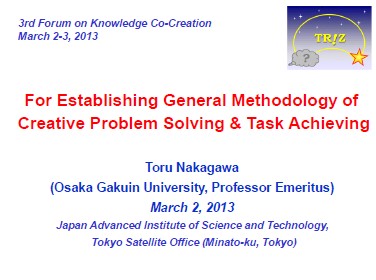
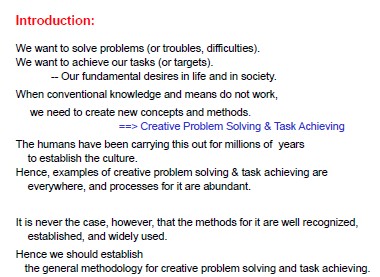
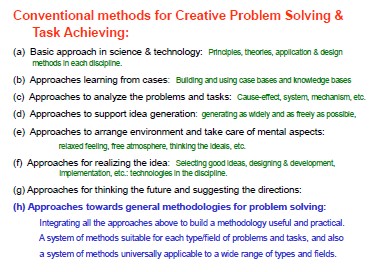
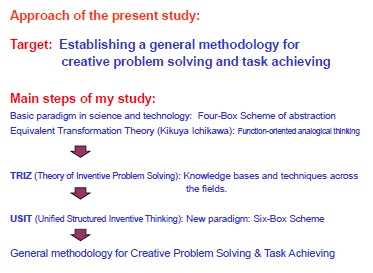
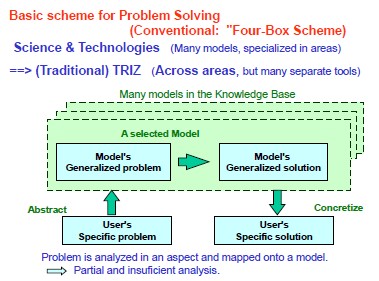
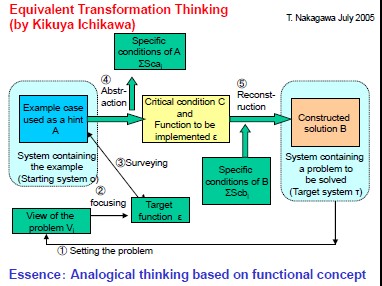
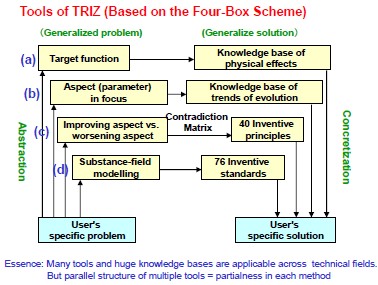
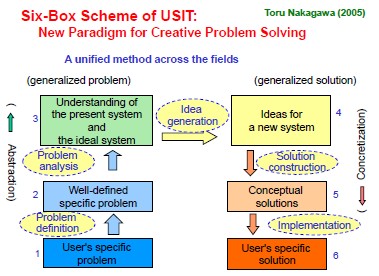
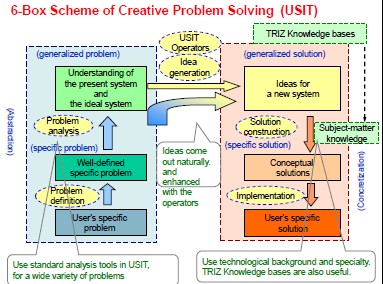
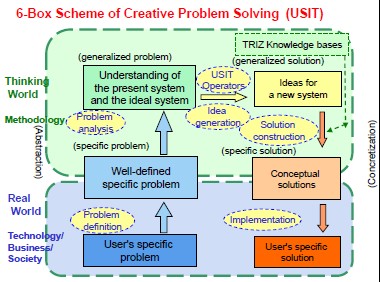
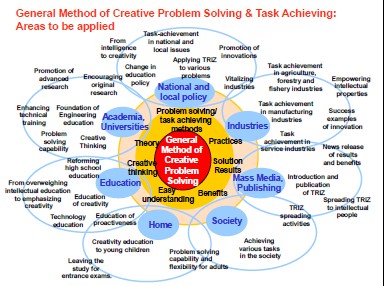
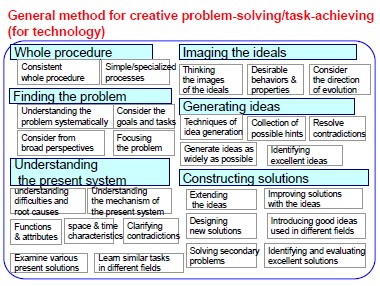
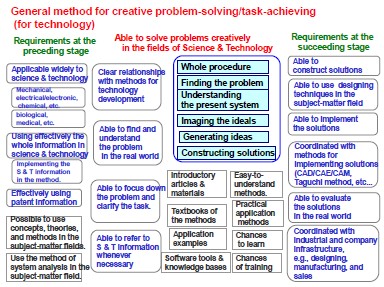
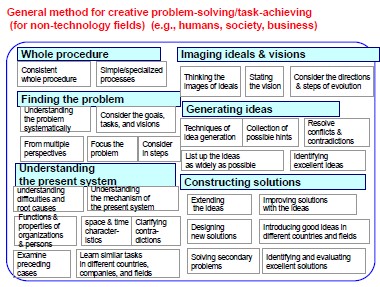
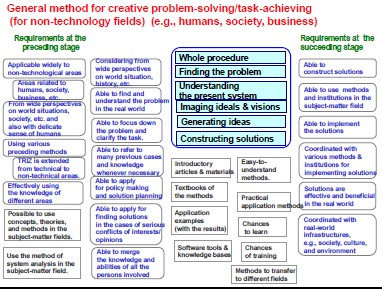
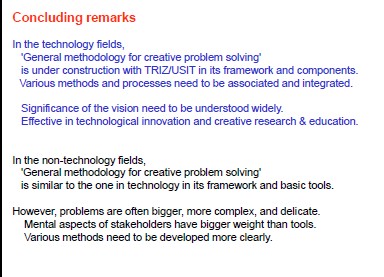
| Top of this page | Slides | Slides PDF |
Japan TRIZ Symp.2012 paper |
ETRIA TFC2012 paper |
TRIZ HP Paper |
Research Note (Guide) |
Japanese page |
Last updated on Jun. 22, 2013. Access point: Editor: nakagawa@ogu.ac.jp